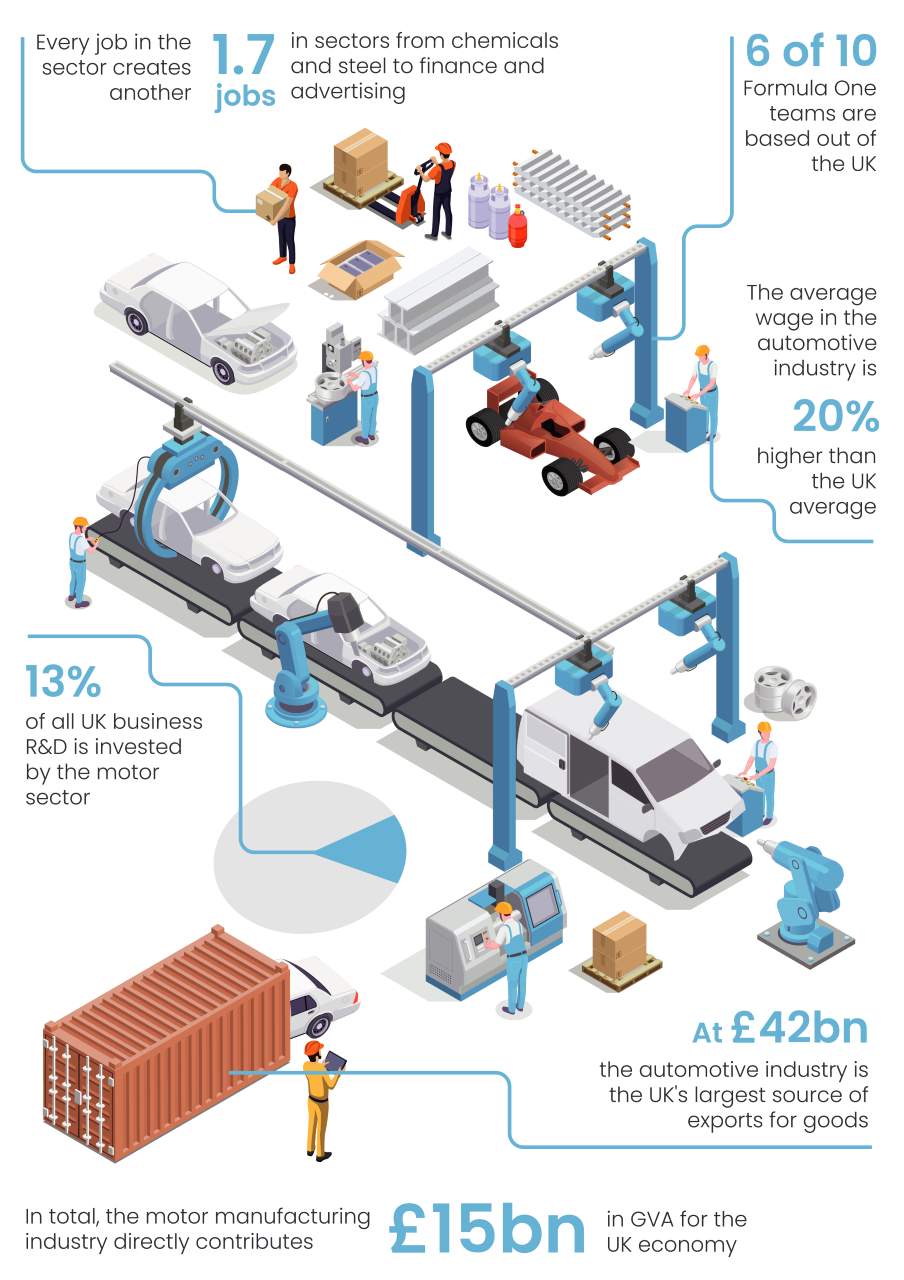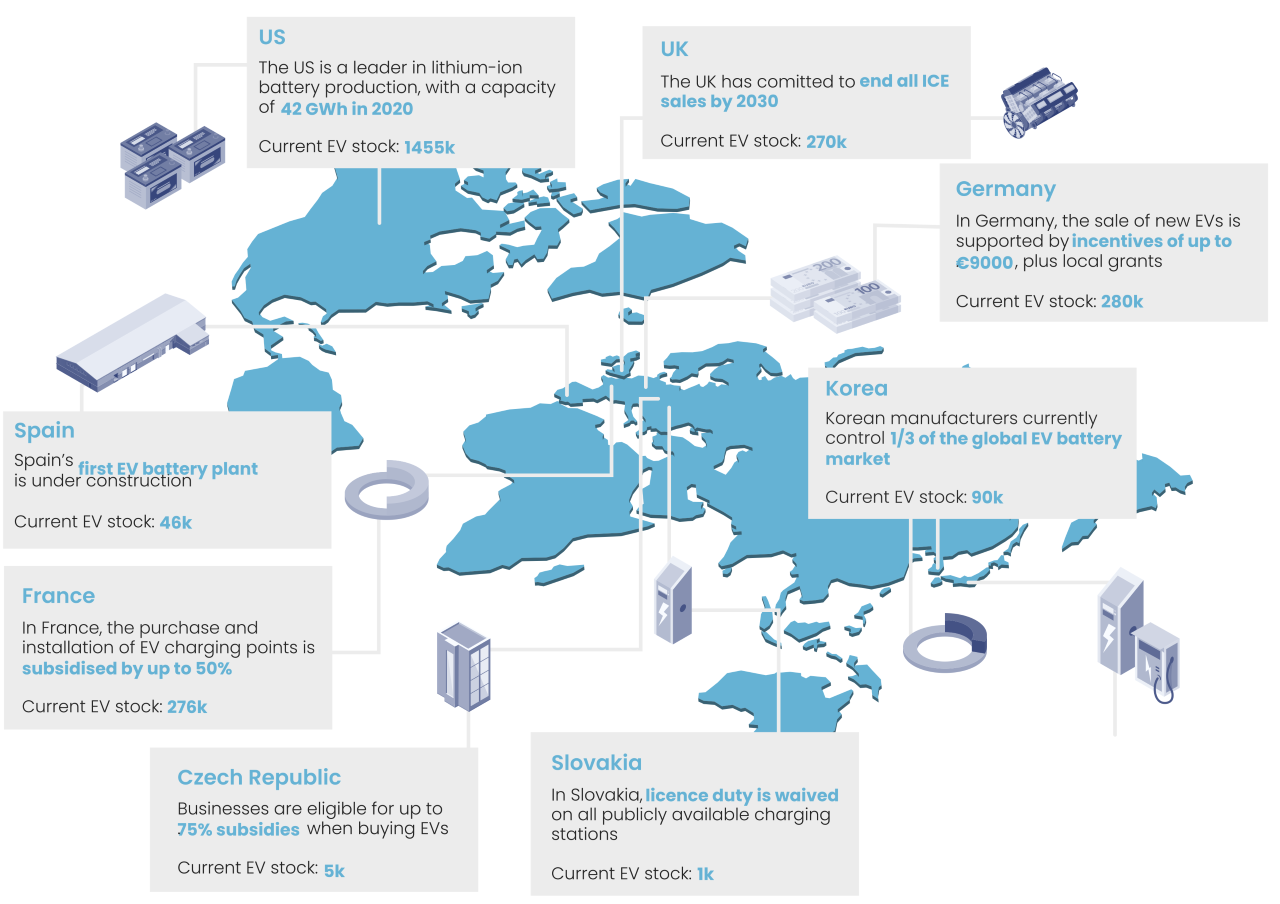‘Full Throttle: Driving UK Automotive Competitiveness’, is a new report launched to secure the future of one of Britain’s most important industries.
Commissioned by SMMT and written by Public First, the strategy sets out a series of bold policy proposals for this coming year and remainder of the decade, covering all aspects essential to automotive industry competitiveness. The UK industry has many strengths – the diversity of its companies, its engineering excellence, innovation, a highly skilled workforce and the strength of the UK market, but the global industry is fiercely competitive, and weaknesses must be addressed if its long term success – and the benefits that come with it – are to be assured.
The strategy calls for a new ‘Build Back Better Fund’ to support industry transformation, not just in automotive but across other manufacturing sectors, to revolutionise production lines and overcome some of the areas where the UK lags in cost competitiveness or strategic support – from skills to energy costs. Most importantly, the fund will help the sector transition to Net Zero and transform our existing manufacturing and supply-chain.
Download ‘Full Throttle: Driving UK Automotive Competitiveness
Download ‘Full Throttle: Executive Summary
Visit ‘Full Throttle: Interactive Website
The shift to electrified vehicles is the biggest challenge facing the sector. Government is already working with industry to attract additional battery manufacturing to the UK but the report calls for a binding target of 60 GWh of battery capacity be built by 2030. These ‘gigafactories’ would give British manufacturers the capability to produce up to one million electric vehicles a year and ensure tariff free access to critical markets in the EU.
Finally, to support market transition, the report calls for the installation of at least 2.3 million charging points nationwide before the end of the decade. This would ensure all drivers – especially those without driveways – have the confidence to invest in the latest zero emission technologies, investment that will not just support a healthy domestic vehicle market, but which will underpin mass market automotive manufacturing in the UK and help deliver the country’s climate change and air quality goals.
The stakes are high. In a best-case scenario with the sector transitioning successfully to a zero emissions future, with ambitious global trading terms, there is the potential to gain 40,000 new, well paid and highly skilled sector jobs by 2030. This would provide a significant impact in auto heartlands such as the North-East and West Midlands, directly helping ‘level up’ the UK.3
Without the competitive conditions, however, the UK’s automotive industry risks decline. In a worst-case situation, with the sector left stranded, analysis shows that around 90,000 jobs could be lost compared with the central scenario, with most of these outside London and the South-East, increasing UK regional inequality.4
‘Full Throttle: Driving UK Automotive Competitiveness’ outlines 12 policy proposals. If acted on together, they will set the UK sector on course for growth, boosting innovation, productivity and enterprise with benefits for all society. If not, the industry risks falling behind, with production declining, jobs lost and economic damage not only in automotive, but in the many other sectors the industry helps support, from chemicals and steel to finance and advertising.
The 12 Policy Proposals
Technology & Innovation
- Commit to creating 60 GWh of battery production within the UK via gigafactories by 2030.
- Support development of a fuel cell gigafactory with 2GWh capacity to support cars, heavier vehicles and rail units by 2030.
- Roll out a comprehensive and long-term skills strategy that supports auto needs combined with piloting greater flexibility in the Apprenticeship Levy to support retraining.
- Commit to the UK becoming a global leader in developing, testing, trialling and deploying Connected and Automated Vehicle (CAV) technology.
Manufacturing Competitiveness
- Introduce a new ‘Build Back Better Fund’ to support good manufacturing jobs for the future and help lower manufacturing costs such as energy.
- Allow net zero critical industries, such as manufacturers of low carbon, hydrogen and battery vehicles, to access the same benefits and compensation schemes as energy intensive industries and get more support within the UK Emission Trading Scheme (ETS).
- Fund trial and demonstration projects to explore the use of hydrogen during manufacturing.
- Ensure the UK tax system helps position Britain as an attractive destination for global investment.
Consumer, Market & Trade
- Develop a holistic infrastructure strategy to ensure that at least 2.3 million public charging points are in place by 2030.
- Commission an independent review to holistically consider the long-term future of fuel duty and CO2 based taxes like vehicle excise duty in a decarbonised sector.
- Continue Plug-in Vehicle Incentives beyond their current term and exempt Ultra Low Emission Vehicles from taxation for the next five years
- Work with the industry to develop an ambitious, forward looking trade strategy, which targets the sector’s most important markets.











